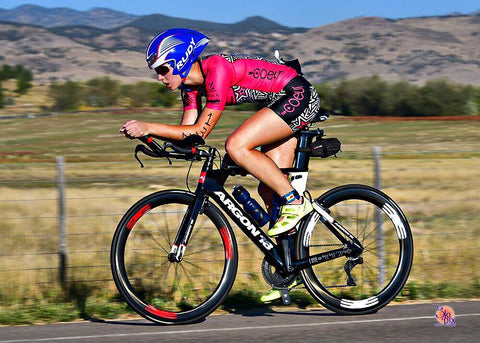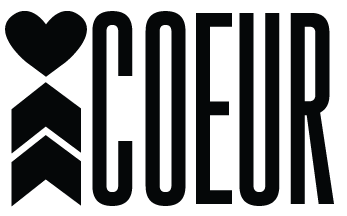 At face value, inclusivity is a relatively simple concept. We recognize when a group of folks aren’t being included in something, and we include them. Easy, right? Kinda.
At face value, inclusivity is a relatively simple concept. We recognize when a group of folks aren’t being included in something, and we include them. Easy, right? Kinda.
If inclusivity were truly that easy, everyone would be doing things with everybody else and there would be unicorns everywhere. A woman can dream, can’t she? She can dream, she does dream, but then, she has to take action on her dream.
Coeur Sports is proud to again be a partner of the Outspoken Summit, which addresses hard-hitting topics that women who tri may face. Inclusivity is one of them. Fortunately, we don’t have to fight this good fight alone.
Dr. Lisa Ingarfield and Dr. Sara Gross, the founders of the Outspoken Summit, decoded some of the fundamentals of what being inclusive in triathlon really means. Dr. Ingarfield has devoted her life to studying how to prevent violence against women, and Dr. Gross has spent years researching womens’ many vital societal roles throughout history. Coincidentally, they both love triathlon, and if the name Sara Gross sounds familiar, it’s because she used to be a pro. Whoa.
So, yeah. Two more qualified women on this subject you will not find. Both Lisa and Sara are adamant in enforcing the concept that inclusion is more than simply bringing more women into triathlon (although that is definitely part of the cause).
“It’s not enough just to have demographic changes,” Lisa says. Outspoken is really about protection - how do we keep women in the sport, and that is rooted in the culture we create.”
“Culture” is a buzzword these days, but its impact reaches far beyond trendy verbiage. Creating a culture of inclusivity in triathlon involves race directors thinking carefully about who they market to (read: not just white dudes*) as well as participants considering how they interact with others on race day.
We may not realize it, but every time we interact with a fellow triathlete on race morning, we are shaping the culture of that race. “Sideways glances… all those little things, sometimes we want to brush them under the carpet and say ‘triathlon is a welcoming community!’” Sara comments. “It’s important to remember that not everyone experiences that [sense of welcoming] on race day.”
Things just got real heavy for a sec. But they don’t have to be! Having the privilege of shaping a positive culture at your favorite local race is fun. It is where some of the most effective roots of inclusivity take hold. While we at Coeur know all our readers are fabulous bastions of compassion, helpfulness, and hug-ability (it’s totally a word), it never hurts to be reminded that our actions can impact others. “If you look around [on race day] and don’t see anyone who looks like you, that’s really hard,” notes Lisa.
Keep eyes and heart open as you fill your bike tires in transition. Give a smile if someone looks nervous or alone. Offer your bike pump as a symbol of camaraderie. Yes, bike pumps can symbolize camaraderie in triathlon and triathlon only (okay, maybe cycling, too).

The onus to make a difference is on more than all you lovely triathletes. A large part of inclusivity responsibility falls to endurance sports brands like Coeur.
Coeur is committed to diversity and inclusivity, but heck, we can always learn! And our ears are perked and ready to soak up some knowledge. Lisa and Sara advised that the more brands that include a wide range of demographics in their advertising and messaging, the more inclusive they make the triathlon community. Designing marketing campaigns that feature models of different heights, builds, races, abilities, are all ways companies across the board can make a positive impact. It might seem like a small thing, who your models are, but representing minority groups is critical in cultivating an inclusive environment.
Plus, everyone likes seeing someone who looks like them because we are all freakin’ fine looking! You’re strong and beautiful. And you. And you! And you, too.
Let’s recap - this was a serious lesson in the culture of triathlon and CliffsNotes might be needed. Inclusivity is more than just bringing increased numbers of women into the sport. That is still a huge goal, but inclusivity extends beyond that concept. Changing the way we think about interacting with others as we participate in the good ole’ swim, bike, run is key to fostering an inclusive environment. An easy way to do this? Let your warm, friendly vibes extend to every single person race morning. Don’t leave anyone out of your aura!
Encourage race directors and triathlon companies to include minority groups in their marketing. Help everyone envision themselves crushing their next PR.
We know you’ve got thoughts. Our thoughts are about your thoughts on the thoughts Lisa and Sara shared about inclusivity. That’s a mouthful. Seriously, though. Who’s ready to share their ideas, emotions, and thoughts on this key aspect of triathlon? We’re envisioning hundreds of hands raised.
Join us at the Outspoken Summit this November 15-17 in gorgeous Tempe, AZ. Get outspoken, get tan, get empowered. We can’t wait to see you all there with your one-thousand watt smiles!
About the Author

Kristin is a part-time writer and full-time marketer in higher education who has completed seven Ironman races to date. When she isn't hustling from work to training, she is hiking in the Colorado mountains, spoiling her two cats, or asking her boyfriend if he'll go pick up some pizza. Kristin currently resides in the Greater Denver Area. Feel free to drop her a line at kristin.goett@gmail.com

